Heriot-Watt quantum physicist joins world’s top scientists at World Laureates Forum
A quantum physicist at Heriot-Watt University joined some of the world’s top scientists at a global event in Shanghai, China, to promote science and scientific collaborations.
Professor Mehul Malik, who has published more than 54 papers in the field of quantum optics and quantum information, was one of 150 award-winning scientists from around the world invited to attend the World Laureates Forum in Shanghai from 25 to 27 October.
The event brings together scientists who have won the most prestigious awards in science, including the Nobel Prize, the Turing Award, the Wolf Prize, the Lasker Award and the Breakthrough Prize.
It is quite a big honour to be in the same room as 50 or more winners of top awards such as the Nobel Prize, the Wolf Prize and the Turing Award.
Speakers at the 2024 World Laureates Forum include Nobel Prize winners in chemistry, physics, economics and physiology, including American theoretical physicist David Gross, who shared the 2004 Nobel Prize in Physics; South African biophysicist Michael Levitt, who won the Nobel Prize for Chemistry in 2013 and American cell biologist Randy Schekman, who shared the 2013 Nobel Prize for Physiology or Medicine.
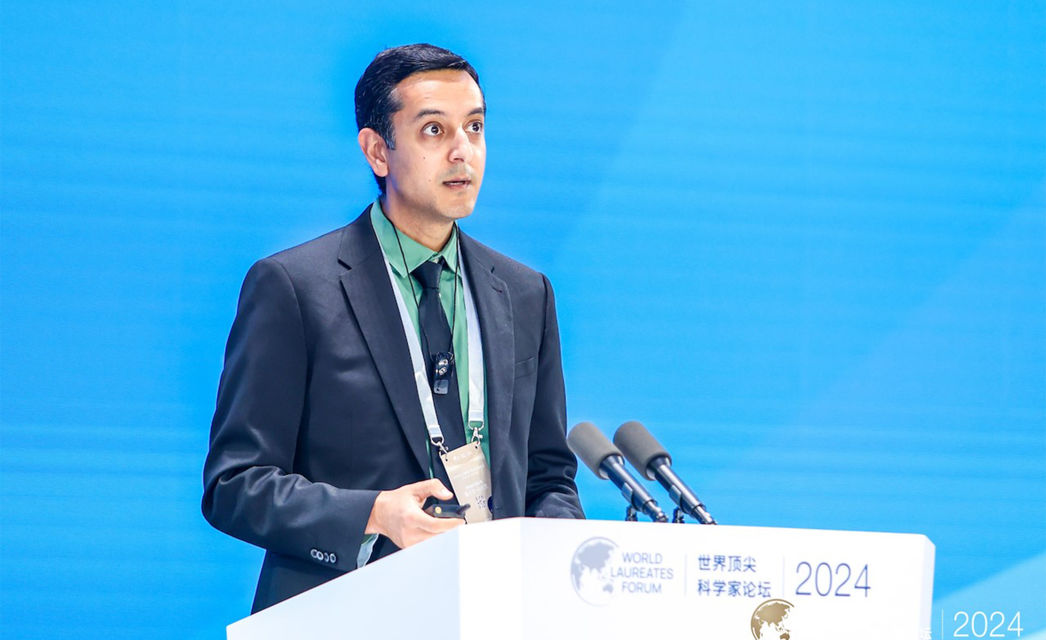
Professor Malik, a Professor of Physics and Royal Academy of Engineering Chair in Emerging Technologies at Heriot-Watt University, has himself won multiple high-profile awards for his work in quantum physics. Most recently this has included being named a Finalist in the Blavatnik Awards for Young Scientists in the UK, a prestigious awards programme administered by The New York Academy of Sciences and funded by philanthropic organisation the Blavatnik Family Foundation.
“It is quite a big honour to be in the same room as 50 or more winners of top awards such as the Nobel Prize, the Wolf Prize and the Turing Award,” Professor Malik said. “These are some of the most accomplished scientists in the world and I’m quite excited to be meeting and interacting with them at this event.”
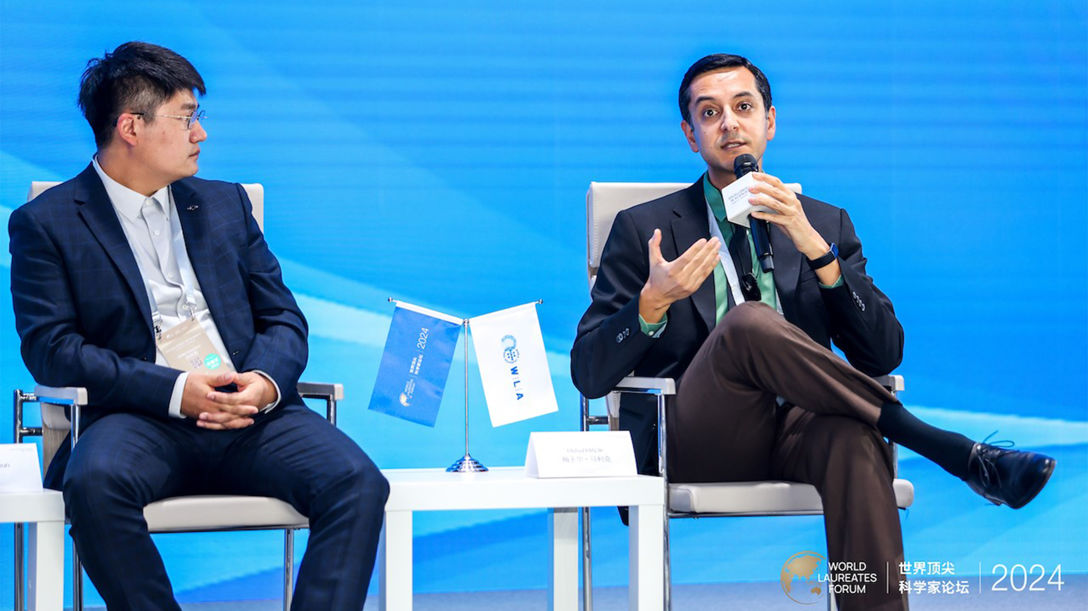
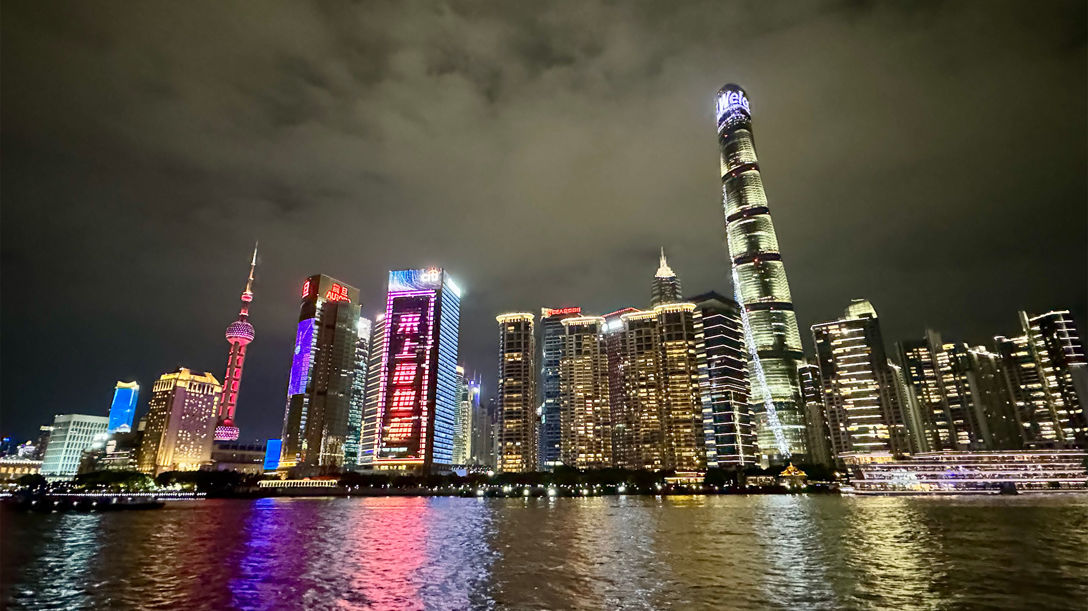
Professor Malik was one of ten scientists who presented as part of the Young Scientist Forum, a breakout conference within the World Laureates Forum. His talk included an overview of where quantum technologies are going and how his team’s research at Heriot-Watt University is contributing to this.
Quantum technologies involve engineering on a microscopic level by working with individual atoms or photons – particles of light. Scientists are harnessing the physics of these particles to develop ultra-high performance applications including more powerful computing, unconditionally secure communications and more reliable navigation systems. The different areas of quantum technology include quantum networks, quantum computing and quantum-enhanced sensing and imaging.
“We are at a very exciting point in the development of quantum technologies and there's a lot of interest from industry and governments around the world in making them accessible and applying them to more scenarios that affect our lives directly,” Professor Malik explained. “For example, in biomedical imaging, research is exploring how quantum technologies can help us to diagnose cancer better. Quantum computing is also attracting a huge amount of investment around the world, and researchers are looking at how that could be used to improve drug development and make better medicines.”
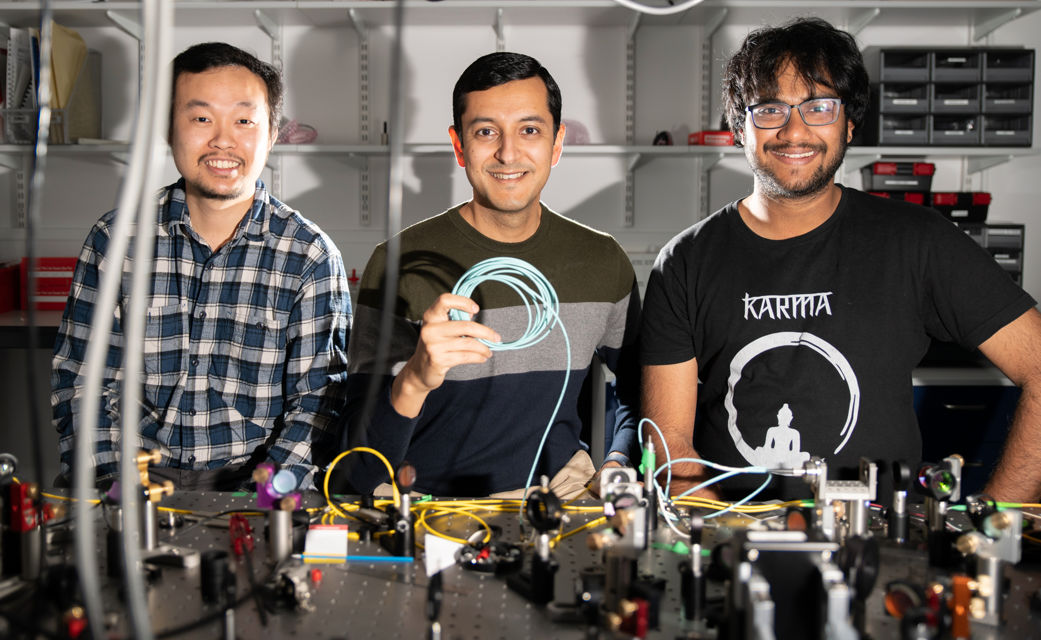
Professor Malik’s own research involves harnessing the multiple properties of light – space, time and colour – to unlock exponentially more processing power than traditional systems that compute with electricity. The team is pioneering a powerful new way to programme optical circuits – which are critical to the delivery of future quantum technologies – using the natural scattering of light inside commercial optical fibres.
“We can encode a lot of information on a single particle of light – on its spatial structure, on its temporal structure, on its colour,” Professor Malik explained. “And if you can compute with all of those properties at once, that unlocks a massive amount of processing power.”
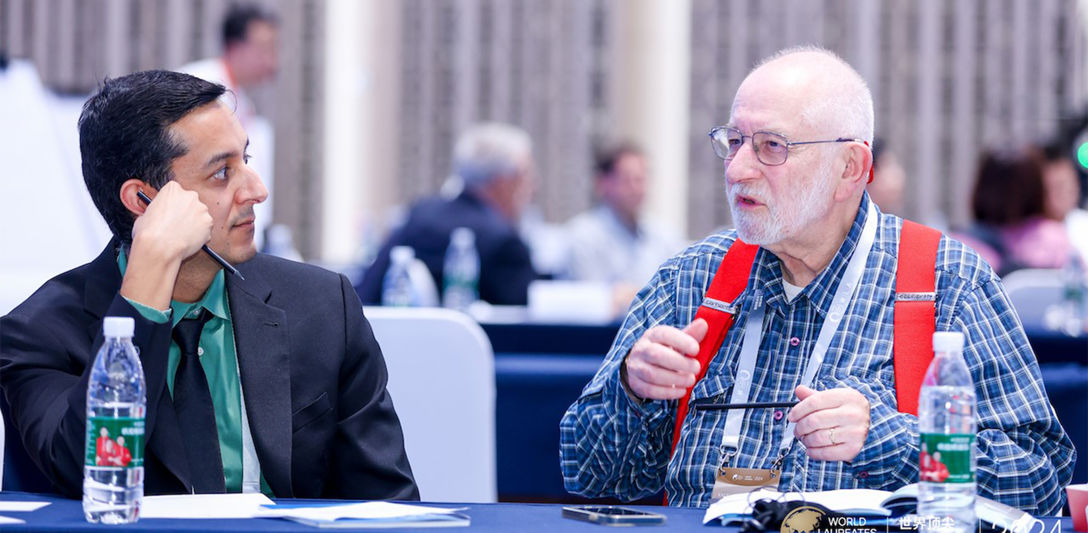
Professor Malik’s sessions at the World Laureates Forum included sharing an event with Sir Michael Berry, a prominent British scientist who is known for important breakthroughs in the area of science that bridges classical physics and quantum mechanics. The two scientists worked with high school students and teachers in a quantum science workshop.
The aims of the World Laureates Forum include showcasing latest scientific breakthroughs, addressing common challenges and identifying opportunities in international cooperation. The event is organised by the World Laureates Association, a non-government and non-profit organisation that aims to promote basic science, advocate for international cooperation and support youth development.
